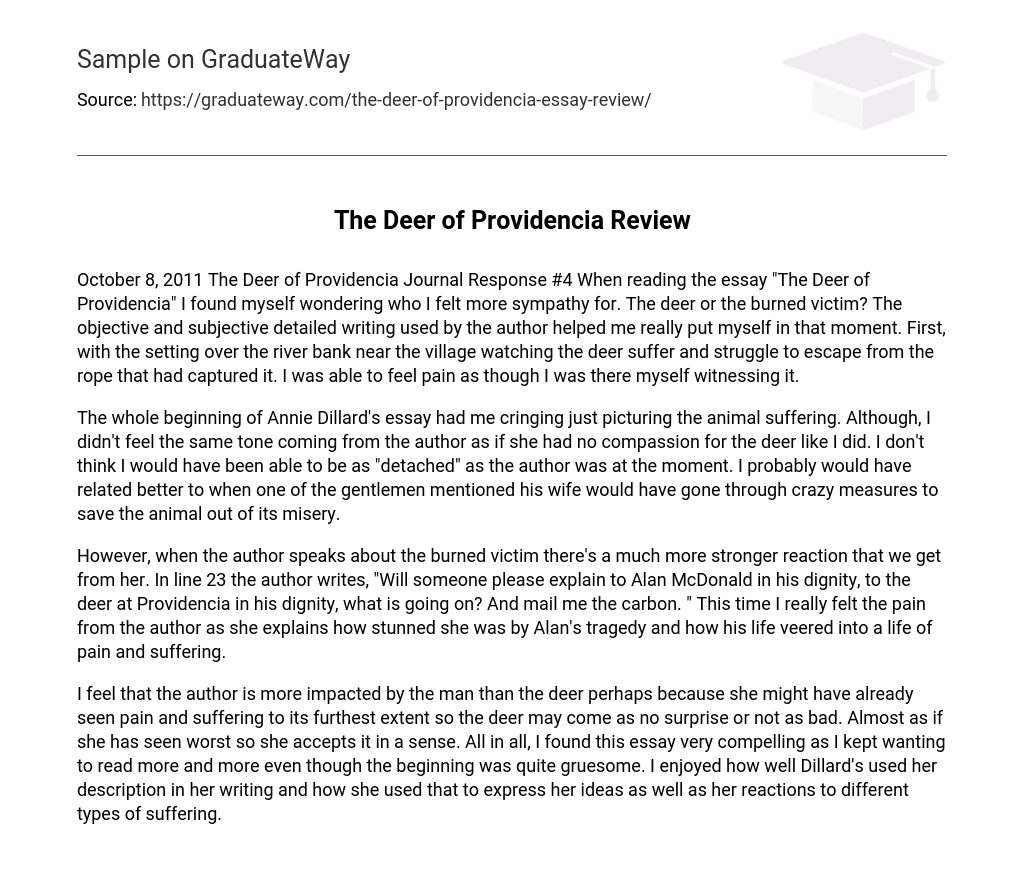While reading the essay “The Deer of Providencia,” I contemplated whether I felt more sympathy for the deer or the burned victim. The author’s use of objective and subjective detailed writing allowed me to fully immerse myself in that moment. Specifically, the scene by the river bank near the village, observing the deer’s plight as it tried to free itself from the entangling rope, evoked in me a profound sense of empathy as if I were personally present.
The initial portion of Annie Dillard’s essay made me cringe, imagining the anguish endured by the animals. However, I did not perceive the same empathy from the author; it seemed as though she lacked compassion for the deer, unlike myself. Given the circumstances, I doubt I could have maintained the level of “detachment” that the author did. I would likely have resonated more with one of the men mentioning that his wife would have gone to great lengths to alleviate the animal’s suffering.
However, the author’s reaction is much stronger when discussing the burned victim. In line 23, the author expresses, “Will someone please explain to Alan McDonald in his dignity, to the deer at Providencia in his dignity, what is going on? And mail me the carbon.” This moment truly showcases the author’s pain as she describes her shock and the tragic path Alan’s life has taken, filled with pain and suffering.
The author appears to be more affected by the man than the deer, possibly because she may have already witnessed extreme pain and suffering. As a result, the deer may not come as a surprise or seem as bad. It’s almost as if she has encountered worse and therefore accepts it to some extent. Despite its gruesome beginning, I found this essay incredibly captivating, prompting me to continuously read on. I particularly appreciated Dillard’s skillful use of description in her writing, which effectively conveyed her ideas and reactions to various forms of suffering.





